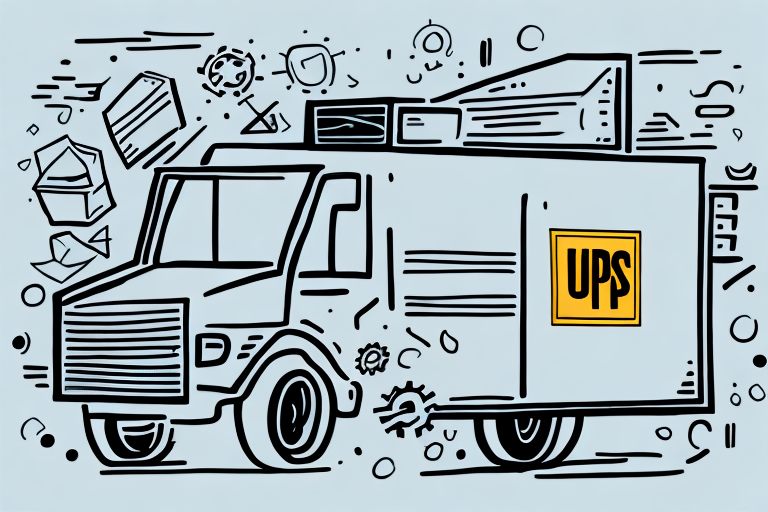The Importance of Residential Deliveries in Today's World
In an era dominated by e-commerce, residential delivery services have become indispensable. Residential delivery refers to the process of transporting goods directly to a customer's home, encompassing a wide array of products from groceries and clothing to furniture and appliances. This service is primarily facilitated by delivery companies, mail carriers, and couriers operating within local regions. The significance of residential deliveries lies not only in the convenience they offer but also in their role in supporting the growth of online shopping and contributing to economic activity.
Impact on Daily Life
The convenience of having products delivered directly to one's doorstep has transformed consumer behavior. According to a Statista report, global e-commerce sales are projected to reach $6.54 trillion by 2023, highlighting the escalating demand for efficient delivery services. This shift has been accelerated by the COVID-19 pandemic, which increased reliance on home deliveries due to lockdowns and social distancing measures.
Environmental Considerations
Residential deliveries also play a role in environmental sustainability. By reducing the need for individual car trips to stores, delivery services help decrease traffic congestion and lower greenhouse gas emissions. Additionally, many companies are adopting eco-friendly practices, such as using electric or hybrid vehicles, to minimize their carbon footprint.
Types of Residential Deliveries
Residential delivery services come in various forms, each tailored to meet different customer needs and preferences:
- Standard Delivery: The most common type, involving the delivery of goods to the customer's doorstep within a specified time frame.
- Same-Day Delivery: Increasingly popular, this service ensures that orders are delivered on the same day they are placed, catering to urgent needs.
- White-Glove Delivery: A premium service that includes not only delivery to a specific location within the home but also the installation of items such as furniture, appliances, or electronics.
Some deliveries, especially to remote or challenging locations, may incur additional fees. It's essential to consult with the delivery company or retailer to understand any extra costs or special handling requirements for specific orders.
Evolution and Future Trends in Residential Deliveries
The landscape of residential deliveries has undergone significant transformations, driven by advancements in technology and changing consumer expectations.
Technological Advancements
Automation and technology have revolutionized the delivery process. Innovations such as drones and delivery robots are being tested and implemented to enhance efficiency and reduce delivery times. Moreover, sophisticated tracking and logistics systems provide real-time updates, enabling customers to monitor their deliveries seamlessly.
Future Trends
Looking ahead, several trends are set to shape the future of residential deliveries:
- Increased Automation: The use of autonomous vehicles and drones is expected to become more prevalent, addressing the challenges of last-mile delivery.
- Eco-Friendly Practices: Sustainability will remain a priority, with companies adopting greener delivery methods and packaging solutions.
- On-Demand Delivery Services: The demand for flexible and rapid delivery options will continue to rise, leading to the expansion of on-demand logistics solutions.
Benefits of Choosing a Reliable Residential Delivery Service
Selecting a dependable residential delivery service offers numerous advantages:
- Convenience: Customers can shop from the comfort of their homes without the need to visit physical stores.
- Speed: With options like same-day delivery, products reach customers swiftly, enhancing satisfaction.
- Cost-Effectiveness: Home deliveries can save customers money on transportation and time.
- Reliability: Trusted delivery companies ensure that goods arrive on time and in excellent condition.
Additionally, reliable delivery services provide peace of mind through features like package tracking and delivery notifications, allowing customers to stay informed about their orders.
Challenges and Solutions in the Residential Delivery Industry
Despite its advantages, the residential delivery sector faces several challenges:
Theft and Security
Package theft, often referred to as "porch piracy," is a growing concern. To mitigate this, companies are implementing advanced tracking systems and utilizing secure drop-off locations. Some are also partnering with local businesses to offer safe pickup points.
Delivery Delays and Logistics
Managing timely deliveries remains a complex task, especially during peak seasons. Investing in fleet management tools and optimizing delivery routes through data analytics can help reduce delays. Additionally, hiring and training competent personnel ensures efficient operations.
High Transportation Costs
Transportation and logistics costs can be prohibitive, particularly for smaller companies. Collaborative efforts, such as partnering with other businesses to share transportation resources, or outsourcing logistics to third-party providers, can help alleviate these expenses. Embracing fuel-efficient vehicles and optimizing delivery routes also contribute to cost reduction.
Best Practices for Ensuring Safe and Secure Deliveries
Implementing effective strategies is crucial for maintaining the safety and security of residential deliveries:
- Designated Delivery Areas: Establishing specific drop-off points minimizes the risk of theft or damage.
- Signature Requirements: Requiring a signature upon delivery ensures that packages are received by the intended recipient.
- Real-Time Tracking: Providing customers with tracking information enhances transparency and trust.
- Surveillance Systems: Installing security cameras at strategic locations deters criminal activities.
Effective communication regarding delivery preferences further enhances security. Understanding whether a customer prefers packages left in a particular area or requires a notification upon delivery can prevent potential issues.
Choosing the Right Residential Delivery Service
Selecting an appropriate delivery service involves evaluating several factors to ensure it meets your specific needs:
- Delivery Speed: Assess how quickly you need your items and choose a service that offers suitable delivery options.
- Cost: Compare pricing structures of different providers to find a cost-effective solution within your budget.
- Reliability: Opt for companies with a strong reputation for punctual and secure deliveries.
- Customer Service: Excellent customer support can make a significant difference in handling any issues that may arise.
Additionally, reading customer reviews and ratings can provide insights into the performance and reliability of potential delivery services.
The Role of Technology in Streamlining the Residential Delivery Process
Technology is pivotal in enhancing the efficiency and effectiveness of residential delivery services:
- Real-Time Tracking: Advanced tracking systems allow customers and companies to monitor deliveries in real-time, ensuring transparency.
- Automated Fleet Management: Tools that manage and optimize delivery vehicle fleets contribute to faster and more efficient deliveries.
- Data Analytics and Machine Learning: Leveraging data helps in optimizing delivery routes and predicting delivery times, improving overall service quality.
- Contactless Delivery: Particularly relevant during health crises like the COVID-19 pandemic, contactless delivery minimizes physical interactions.
These technological advancements not only streamline operations but also enhance the customer experience by providing more reliable and flexible delivery options.
Conclusion
Residential delivery services have become a cornerstone of modern commerce, driven by the surge in online shopping and the need for convenience. They offer numerous benefits, including ease of access to goods, time savings, and cost efficiency. However, the industry must navigate challenges such as security concerns, logistical complexities, and rising operational costs. Embracing technological innovations and adopting best practices are essential for overcoming these obstacles and meeting the evolving demands of consumers. As the landscape continues to evolve, residential deliveries will increasingly rely on sustainable practices and advanced technologies to enhance efficiency and customer satisfaction. Selecting a reliable delivery service, staying informed through real-time tracking, and effectively managing any delivery issues are critical components in ensuring a smooth and satisfactory delivery experience for all parties involved.








